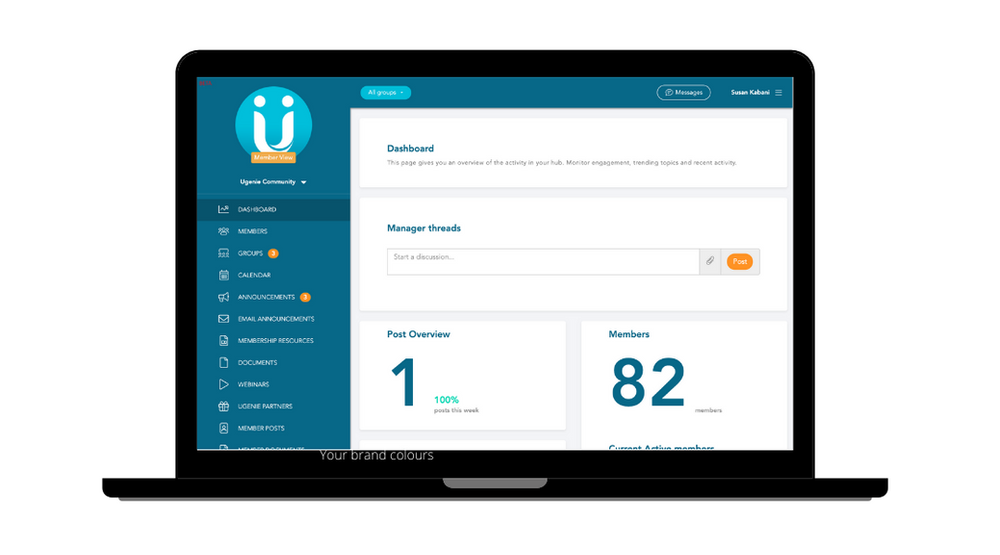In Community 2.0: Reasons Why Membership Business Owners Are Abandoning Facebook Groups, we talked about the trends of migration to online community platforms. Community 2.0 involves private and branded platforms which boast the same features of a social networking platform, but prioritise dedicated web and mobile environments to help build, grow and engage communities. Facebook is an example of Community 1.0.

Though Facebook groups have become distracting and algorithmically challenging for various membership business owners, they do still hold some value. In this article, we investigate reasons why using Facebook alongside an online community platform is effective. We also offer tips and insights on optimising the combination. We hope you get the best out of both worlds!
Finding Members vs Hosting Membership
When starting a membership business, a Facebook group or page can help you source prospective members to build relationships with.
Statista note that as of July 2021, Facebook is still ranked number one in terms of active users. Facebook is essentially a marketing opportunity for your membership business. That's because of 'findability'. Facebook has become a directory for most businesses. After setting up a business page, you may wish to use a public or private Facebook group for focused content sharing and new member classification.
Various membership businesses opt for private Facebook groups. In the inception phase of a business, the private method can control for quality and generate perceptions of exclusivity.
However, Facebook may not work for hosting all elements of a membership business. With an online community or membership platform, you have the opportunity to centralise payments, the deep customisation of your space and member information. So, whilst using this two-tiered method, it is important to reshape your view of Facebook as being more suited for lead generation, but not for all parts of a membership business.

Community Testing & Insights
As Facebook is free, it can be a cost effective way to gather market research, test if content is engaging and discover if members would prefer an alternative platform. According to Postcron, it is important to establish the quality of content and conversation within a community to develop brand identity and culture.
In this regard, Facebook groups can help find the right members or contributors, as there's an option to include 'qualifying questions' for joining approval.
Facebook also consists of valuable insights and data on growth and engagement. These metrics can guide your membership business strategy as a whole. So, whilst using an online community platform, it may be worth keeping Facebook for testing community activities and analysing successes or failures with data.

Online Community Platform Migration
Suppose you are allured by the idea of an online community platform. When devising a strategy to migrate members, try to utilise Facebook to introduce such change.
Keep in mind that Facebook still feels familiar for most of your members or prospects.
CMS Wire outline a detailed 'migration approach' on their website. They mention that businesses should consider a 'phased approach'. By defining a timeline, surveying members on Facebook for their platform preferences, and communicating the migration process, you are sure to make the correct decision.
In a nutshell, Facebook is useful for preliminary research before moving to an online community platform, and still useful as a free tool if you decide not to leap.

In this article, we have outlined three ways you can use Facebook alongside an online community platform. We hope that these musings and insights have helped! Facebook is wonderful for finding new members, but online community platforms can power other elements of your membership business. Still, Facebook acts as a great tool for testing community ideas and facilitating migration to a different platform.
If you are hoping to use a community platform that’s different to Facebook, please do ensure that you choose the one that is right for you. To guide your choice, we have compiled a report on your options in The 7 Best Membership & Subscription Community Platforms.
If you are a community leader, or in the business of community, try a Ugenie hub, for free, for 45 days.
Share this
You May Also Like
These Related Stories

Rethink Facebook Marketing. Organic Reach Is Declining | Ugenie | Community Tips

The 7 Best Membership & Subscription Community Platforms

